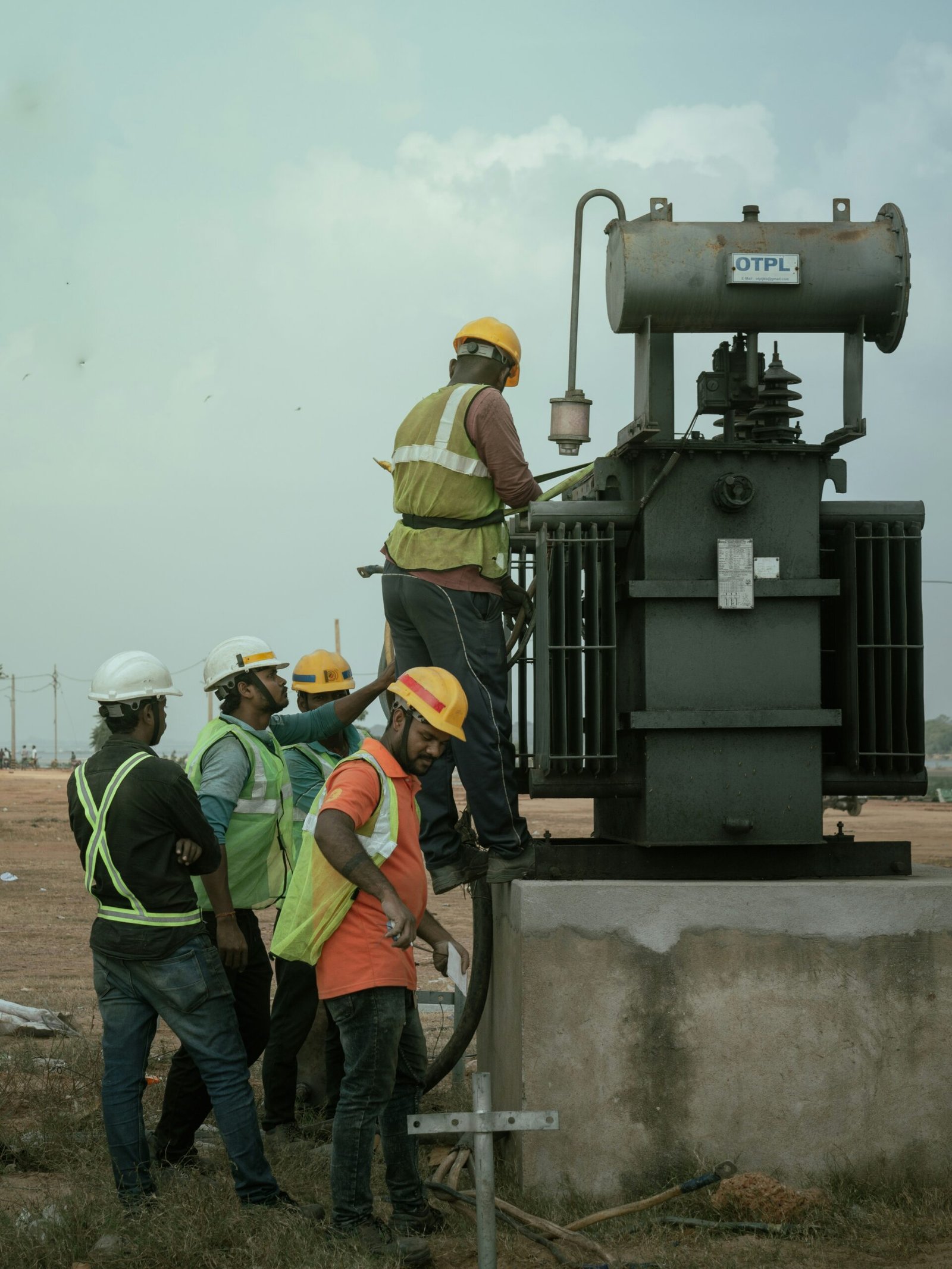Introduction to Power Engineering Workforce Trends
The power engineering sector is experiencing significant transformations influenced by advancements in technology and a heightened emphasis on sustainable energy solutions. This evolving landscape has drawn attention to workforce trends within the industry, making it essential to understand the current state of employment, skills, and the demographic shifts occurring amongst professionals in this field. Workforce trends can provide crucial insights that help stakeholders align their strategies with the changing demands of energy production and distribution, enhancing overall efficiency and innovation.
In assessing the current workforce in power engineering, a comprehensive survey was conducted targeting professionals across various sectors within the industry. The aim was to capture a holistic view of workforce composition, skill requirements, and perceived challenges. Participants were drawn from diverse demographics, including seasoned professionals, recent graduates, and individuals in transition between careers. This allowed for a representative sample encompassing various levels of experience and expertise.
The industries represented in the survey span traditional energy sectors, renewable resources, and emerging technologies related to power engineering. Such diversity ensures that the resulting trends captured offer perspectives from both conventional practices and innovative approaches to energy solutions. Key objectives of the survey included identifying the critical skills needed for the future workforce, understanding educational pathways that are currently favored, and gauging the industry’s readiness to adapt to rapid technological changes.
Overall, this survey serves as a vital tool for understanding the dynamics of the power engineering workforce. By analyzing these trends, stakeholders—including educational institutions, employers, and policymakers—can better prepare for the challenges and opportunities that lie ahead in the realm of energy production and sustainability.
Key Findings from the Survey
The recent survey conducted on workforce trends in power engineering highlights several significant findings that are reshaping the industry landscape. One of the most notable outcomes is the projected job growth within this sector. The survey indicates that the demand for skilled professionals in power engineering is expected to increase by 15% over the next decade. This growth mirrors the rising need for innovative energy solutions and sustainable practices in response to climate change and technological advancements.
In terms of qualifications, the survey reveals that employers are actively seeking candidates with a strong foundation in both electrical engineering and software development. Key skills such as data analysis, project management, and proficiency in renewable energy technologies are prioritized by hiring managers. As the industry evolves, professionals equipped with expertise in smart grids and energy efficiency are becoming increasingly valued, suggesting that a modern skill set is essential for those entering the workforce.
Diversity and inclusion trends have also been underscored in the findings. The survey shows a growing emphasis on fostering a diverse workforce, with numerous companies implementing programs aimed at attracting underrepresented groups to the field. This focus on inclusivity is not only seen as a moral imperative but is also recognized as an essential strategy for driving innovation and addressing the complex challenges facing the energy sector.
Finally, the emergence of new roles related to advancements in technology warrants attention. Positions such as energy data analysts, smart grid specialists, and sustainability consultants are gaining traction, highlighting the importance of adaptability in the evolving job market. These roles underscore the industry’s shift towards integrating modern technology in energy management, emphasizing the need for future professionals to stay abreast of developments in the power engineering domain.
Challenges Facing the Power Engineering Workforce
The power engineering workforce is currently facing several significant challenges, as highlighted by recent survey findings. One of the most pressing issues is the ongoing workforce shortage, which has been a growing concern in the industry. As experienced professionals retire, there is a notable gap in the number of qualified individuals entering the field. This shortage not only threatens the ability to maintain essential services but also places additional strain on existing employees who are often required to take on increased responsibilities.
Accompanying the workforce shortage is a pervasive skills gap that continues to hinder the industry’s growth. Many new entrants to the power engineering profession lack the necessary technical skills and practical experience that are crucial for success. This discrepancy highlights the importance of aligning educational curricula with industry demands, as well as the need for greater collaboration between academia and industry stakeholders. Furthermore, barriers to entry for new professionals, such as stringent licensing requirements or expensive certifications, can deter potential candidates from pursuing a career in power engineering.
In addition to workforce and skills challenges, the power engineering sector must also prioritize ongoing professional development. As technology evolves and regulatory standards shift, it is critical for professionals to stay abreast of new developments. This continual learning process not only helps in enhancing skill sets but also provides employees with the ability to adapt to changing market conditions. Additionally, the implications of regulatory changes can significantly affect job stability and growth potential within the sector. Adapting to these changes requires a proactive approach from organizations, ensuring that their workforce is equipped with the necessary knowledge and skills to thrive.
Future Outlook for Power Engineering Professionals
The landscape of power engineering is anticipated to undergo significant transformation in the coming years, shaping the career trajectories of professionals within this field. As revealed by recent survey insights, technological advancements are expected to be at the forefront of these changes. Notably, innovations in renewable energy, smart grid technologies, and energy storage solutions are set to redefine the core competencies required from power engineering professionals. Specialists will need to adapt to these emerging technologies, which will not only enhance efficiency but also require a deeper understanding of interdisciplinary approaches integrating electrical, mechanical, and software engineering.
Furthermore, the evolution of job roles is projected to create a demand for hybrid skill sets. As traditional roles in power engineering evolve, professionals may find themselves engaged in a mix of engineering tasks, project management, and data analysis. For instance, data-driven decision-making will become increasingly vital as organizations seek to optimize energy distribution and consumption through analytics and artificial intelligence. This shift will necessitate ongoing education and skill development to remain competitive in the job market.
Industry demands are also expected to shift, with a stronger emphasis on sustainability and compliance with environmental regulations. Power engineers will play a crucial role in addressing climate change and contributing to national and international energy goals. To prepare for this evolving landscape, both current professionals and new entrants should actively seek opportunities for continuous learning and networking. Engaging in certifications, attending workshops, and participating in industry conferences will be vital strategies for staying abreast of the latest trends and technologies.
In conclusion, the future of power engineering promises to be dynamic and multifaceted. By embracing technological advancements, adapting to the changing nature of job roles, and aligning with industry demands, professionals can proactively shape their careers in this vital sector.









